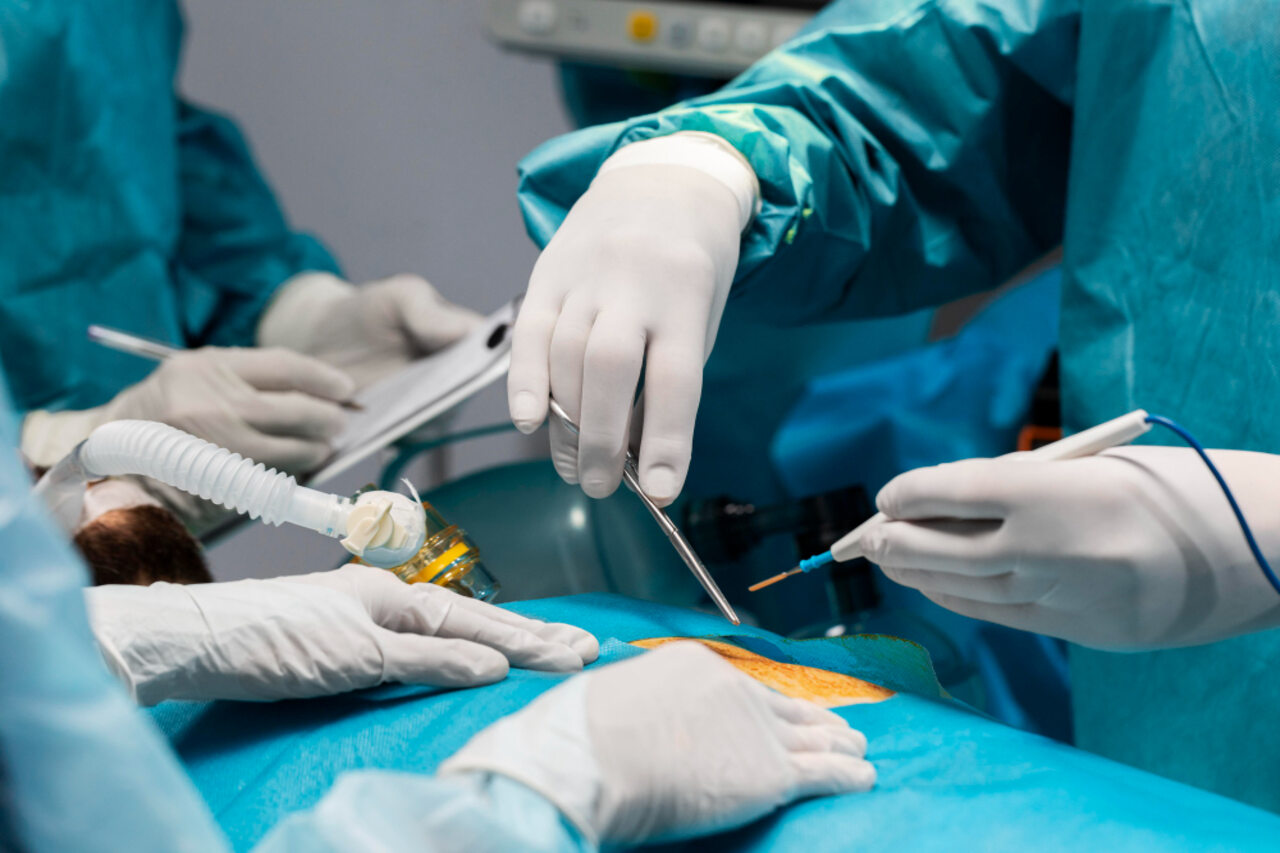Overview

Colorectal surgery is associated with a greater risk for infections than most other surgical specialities and is considered an outlier for surgical site infections (SSI). Reducing the incidence of infections, especially SSIs, remains a major challenge in colorectal surgery. Prevention of SSIs can be achieved by several methods, including optimized preoperative patient preparation, perioperative bowel preparation, strict adherence to antibiotic prophylaxis guidelines, increased intraoperative oxygen delivery, wound irrigation, maintenance of intraoperative normothermia, and postoperative glycemic control.
Prevention of urinary tract infections can be achieved by early urinary catheter removal and sterile intraoperative catheter placement. Respiratory infections can be prevented by smoking cessation, early postoperative mobilization, pulmonary care with use of incentive spirometry, coughing and deep breathing, oral care, and head-of-bed elevation.
Colorectal surgery
The field of colorectal surgery is distinctive in a number of ways. It includes a significant portion of the visceral anatomy. The pelvis is a portion of the human body with sophisticated anatomical detail, involving the digestive tract, complicated vascular architecture, and the neurological system. Numerous problems in colorectal surgery are related to or found in the pelvis. The anatomy of the anorectal area is also complex. The anatomical integrity and/or function of one or more of the aforementioned structures may be impacted by surgery on any section of the anatomical structures connected to colorectal surgery. Theoretically, this speciality may support a variety of 3D printing uses. Numerous studies showing the viability of 3D printing in colorectal surgery have been released.
How Is Colorectal Surgery Performed?
Colorectal surgery is generally performed under local anaesthesia, intravenous sedation or general anaesthesia. The surgery begins by making incisions around the abdomen. There are several ways to perform colorectal surgery, depending on the conditions that need to be treated. Some of the most often used techniques are as follows:
✶ Colectomy
✶ Laparoscopic surgery
✶ Anoplasty
✶ Hemorrhoidectomy
✶ Ileal pouch-anal anastomosis
✶ Lateral internal sphincterotomy
✶ Rectopexy
Colorectal Surgery Preparation
Additionally, one must take laxatives before to surgery to become ready for bowel surgery. To give the surgeon a clear and clean surgical field, it is intended to empty the lower digestive tract. Additionally, this avoids post-operative infections. In addition, the following preparations for abdominal surgery may be necessary:
✶ Avoid taking anti-inflammatory drugs
✶ Wear loose clothing
✶ Leave all the jewellery at home before going to the hospital
✶ Stop taking blood-thinning medications for two weeks before the surgery
✶ Not to eat or drink after midnight before the surgery
✶ Pre-arranging a ride home after the surgery
Care After the Surgery
Patients may need to stay in the hospital for one or two days, depending on the type of surgery. Colorectal surgery recovery typically takes six to eight weeks, though it occasionally takes longer. To ensure fewer difficulties and a quicker recovery, the doctor will offer a post-operative care package. The fifth or seventh day may also be requested by the doctor in order to check on the patient's progress. Other post-operative care options include:
✶ Take proper rest
✶ Try to walk after the surgery
✶ Don’t drive for a few weeks
✶ Keep the incision area clean and covered with a dressing
✶ Take vitamin A and vitamin C supplements
✶ Avoid alcohol or smoking for a few weeks




